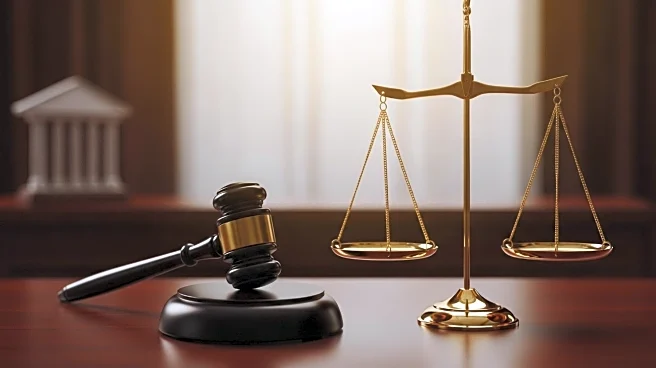What's Happening?
A federal appeals court has upheld a civil jury's decision requiring President Donald Trump to pay $83.3 million to E. Jean Carroll. This judgment stems from Trump's repeated social media attacks against Carroll after she accused him of sexual assault. The 2nd U.S. Circuit Court of Appeals rejected Trump's appeal, which argued that the damages were excessive and sought a new trial based on the Supreme Court's expansion of presidential immunity. The court found Trump's attacks on Carroll to be 'extraordinary and unprecedented,' justifying the substantial award. Carroll's lawyer, Roberta Kaplan, expressed satisfaction with the ruling, emphasizing that the court affirmed Carroll's truthfulness. The case originated from Carroll's 2019 memoir, where she accused Trump of assaulting her in a Manhattan department store in 1996. A jury previously found Trump liable for sexual assault but not rape under New York law.
Why It's Important?
The ruling is significant as it reinforces the accountability of public figures for defamatory statements, even when they hold or have held high office. It underscores the legal system's role in protecting individuals from character attacks and affirms the judiciary's capacity to impose substantial penalties for such actions. The decision may influence public discourse around the responsibilities of political leaders in their communications, particularly on social media. It also highlights the ongoing legal challenges faced by President Trump, which could impact his political ambitions and public image. Carroll's victory may encourage other victims of defamation to pursue legal recourse, potentially leading to more high-profile cases involving public figures.
What's Next?
The appeals court's decision marks a significant step in the legal proceedings, but further actions could follow. Trump's legal team may consider additional appeals or seek other legal avenues to contest the judgment. The case could also influence ongoing and future litigation involving Trump, particularly as he continues to engage in political activities. Carroll and her legal team may focus on enforcing the judgment and addressing any further defamatory statements. The ruling may prompt discussions among lawmakers and legal experts about the balance between free speech and defamation, especially concerning public figures.
Beyond the Headlines
The case raises broader questions about the intersection of politics, media, and the legal system. It highlights the challenges of navigating defamation laws in the digital age, where social media amplifies the reach and impact of statements. The ruling may contribute to evolving legal standards regarding the accountability of public figures for their online conduct. It also touches on cultural issues related to gender and power dynamics, as Carroll's allegations and the subsequent legal battles reflect broader societal conversations about sexual assault and victim advocacy.









